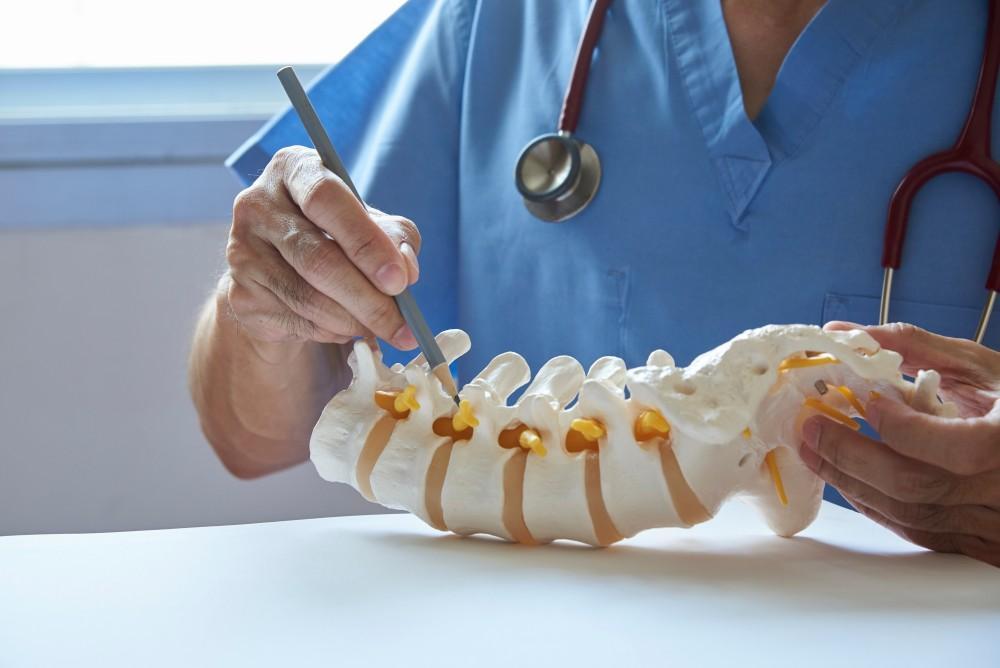
The Benefits of Minimally Invasive Spinal Surgery

Back pain is all too common, affecting 8 out of 10 people at least once during their lives. Your spine is made up of 24 bony vertebrae, each with soft intervertebral discs that absorb shock and help allow you to bend, turn, and flex. The spine extends from the base of the skull into the neck (cervical spine), through the chest (thoracic spine), into the lower back (lumbar spine), and down to the tailbone. Pain can occur for a multitude of reasons, and it can appear anywhere along this path. It may be sudden and sharp, throbbing, or a constant dull ache.
Vertrae® has offices in Dayton and Springfield, Ohio. Board-certified neurosurgeon and neurological spine surgeon Dr. Kamal R. Woods and his team diagnose a wide variety of spinal and neurological conditions, but Dr. Woods is internationally renowned for his expertise in minimally invasive spinal surgery (MISS). He regularly instructs other surgeons on the latest and most innovative technologies and surgical techniques. Here’s what he wants you to know about the benefits of MISS.
What is minimally invasive spine surgery (MISS)?
In the past, if you needed spine surgery, the surgeon typically made a single, long incision in your skin, then cut through muscle and connective tissue — or detached them from bone — to reach the spine itself. The result was a great deal of pain, a serious risk of infection, and a long recovery period.
Since the 1980s, minimally invasive surgery has been gaining traction. It gradually made its way through various specialties, including neurosurgery and spine surgery. Unlike traditional spine surgery, MISS is done through a single or multiple small incisions. Often, these incisions are less than 1 inch. Special retractors are used to spread the tissue instead of cutting the tissue. This leads to less soft tissue disruption. Soft tissue includes muscles, tendons and ligaments. Less disruption of the soft tissues has significant benefits to the patient.
The benefits of minimally invasive spinal surgery
There are a number of benefits of minimally invasive surgery, including:
- Requires less anaesthesia
- Uses smaller incisions
- Poses less risk of infection during surgery and recovery
- Decreases blood loss during the procedure
- Decreases damage to collateral muscles and soft tissues
- Allows same-day discharge from outpatient surgery center
- Decreases postoperative pain
- Decreases scarring
- Faster return to normal activities
What types of conditions can be treated using MISS?
MISS can be used for a number of different spine problems. These include:
- Herniated discs
- Spinal stenosis (narrowing of spinal column)
- Spinal deformities (e.g., scoliosis, kyphosis)
- Fractures (injuries or compression fractures)
- Degenerative disc disease
- Arthritis
- Bone spurs
Some of the specific MISS procedures Dr. Woods performs include:
Laminectomy
This procedure addresses problems with the vertebrae, such as a herniated disc, spinal stenosis, or a tumor. During the laminectomy, Dr. Woods removes a section of one or more vertebrae, relieving pain, eliminating pressure on your nerves, and restoring your physical functions.
Microdiscectomy
A herniated disc can compress the nerves around it, leading to pain, numbness, and weakness. During a microdiscectomy, Dr. Woods trims or removes your herniated disc, alleviating the pressure.
Lumbar fusion
During a lumbar fusion, Dr. Woods uses a bone graft to fuse together two adjacent vertebrae in your spine, with the goal of improving the stability of the lower spine. This procedure can treat conditions like degenerative disc disease and disc herniation.
In addition to regular MISS techniques, Dr. Woods also offers ultrasonic spinal surgery. This cutting-edge technique uses ultrasound instead of scalpels to remove damaged tissue and bone.
If you’re dealing with back pain and are looking for relief, it’s time to come into Vertrae® for diagnosis and treatment, possibly with minimally invasive spinal surgery. Give our office a call at either location to set up a consultation with Dr. Woods, or book online with us today. You’ve got pain, we offer relief.
You Might Also Enjoy...


4 Benefits of Outpatient Spine Surgery

Am I a Candidate for Kyphoplasty?

Pulled Muscle vs. Pinched Nerve: What's the Difference?

4 Subtle Signs of Sciatica

